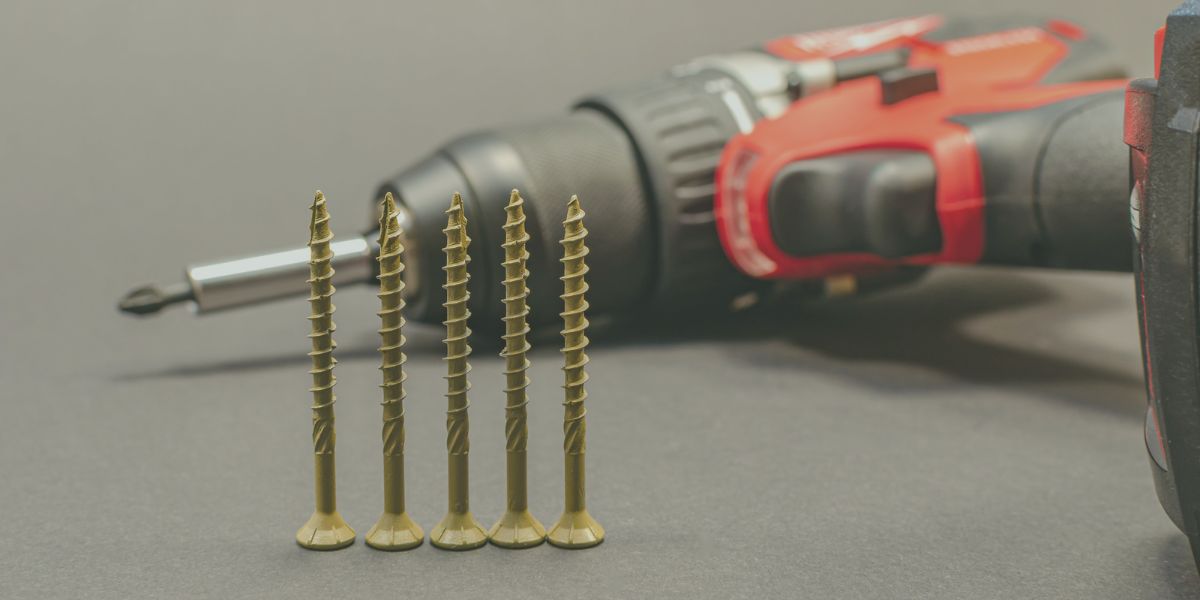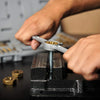
How to Choose the Right Self-Tapping Hex Screws
Entering the world of screws may seem like stepping into a simple, straightforward realm. However, the reality is far from it. There exists an array of different types, sizes and uses, each with its unique characteristics and applications.
Among these, the self-tapping hex screw holds a particular significance. This article aims to serve as an exhaustive guide on how to choose the right self-tapping hex screws for your DIY projects.
Table of Contents
- Understanding Self-Tapping Hex Screws
- When to Use Self-Tapping Hex Screws
- Different Types of Self-Tapping Hex Screws
- Factors to Consider When Choosing Self-Tapping Hex Screws
- Practical Examples and Guidelines
- Conclusion
Understanding Self-Tapping Hex Screws
Self-tapping hex screws are designed with a unique feature that sets them apart from other types of screws - they tap their own thread as they are screwed into pre-drilled holes. This eliminates the need for a separate tapping operation, thus saving time and effort in any DIY or construction project.
The term 'hex' refers to the six-sided head of the screw, which requires a hexagonal driver or wrench for installation. The advantage of a hex-head over other types is that it provides a better grip, reducing the chances of the driver slipping off during installation. This makes the entire process easier, safer, and more efficient.
These screws are widely used in various sectors including construction, manufacturing, and home improvement projects. They are particularly favored for their ability to create secure fastenings in a wide range of materials, from metal and wood to plastic and composite materials. This versatility makes them an invaluable asset in the toolbox of any DIY enthusiast or professional handyman.
Related Article: Guide to DIY Hex Key Sets
When to Use Self-Tapping Hex Screws
Recognizing when to use self-tapping hex screws can significantly streamline your DIY tasks. These screws are ideal for situations where you need to create a durable, tight connection between two materials without the need for nuts or additional threading tools.
Their unique ability to carve their own thread makes them especially useful when working with materials like metal, plastic, or wood. For instance, if you're installing a new kitchen cabinet or constructing a metal garden shed, self-tapping hex screws can provide the secure hold you need.
In addition, due to their reusability, they are beneficial when you need to frequently assemble and disassemble parts. Since they create their own threads, they can be removed and reinserted without damaging the material or the screw's threads.
Different Types of Self-Tapping Hex Screws
There are primarily two types of self-tapping hex screws: thread-forming and thread-cutting.
Thread-forming screws are typically used in softer materials like plastic or soft metals. They work by displacing the material around the screw's threads without removing any material. This creates a highly secure fit, but it also requires more driving torque, which means more effort is needed to drive them in.
On the other hand, thread-cutting screws are used in harder materials like metal and hard woods. These screws have a cutting edge that removes material to form the threads. This means they require less driving torque than thread-forming screws, making them easier to install. However, they also remove material, which can weaken the material if not done correctly.
Understanding the differences between these two types of self-tapping hex screws and knowing when to use each is crucial in selecting the right screw for your project.
Factors to Consider When Choosing Self-Tapping Hex Screws
Picking the right self-tapping hex screw involves considering several key factors:
Material: The material you're working with largely determines the type of self-tapping hex screw you should use. For softer materials like plastic or soft metals, thread-forming screws are often the best choice. For harder materials like hard woods and metals, thread-cutting screws would be more suitable.
Size: The size of the screw plays a critical role in its performance. Larger screws offer more strength and holding power, but they also require larger pre-drilled holes. Smaller screws, while less noticeable and requiring smaller holes, may not provide the same level of strength.
Coating: Coating is another important factor to consider, especially if the screw will be used in harsh environments. If the screw will be exposed to moisture, corrosive substances, or extreme temperatures, a coated screw would be necessary. Coatings such as zinc or stainless steel can provide protection against rust and corrosion, ensuring the longevity of the screw and the integrity of the material it's fastened to.
Thread Type: As discussed earlier, self-tapping screws come in two main types: thread-forming and thread-cutting. Your choice between these depends on the material you're working with and the nature of your project.
Practical Examples and Guidelines
To better illustrate how to choose the right self-tapping hex screws, let's look at a few practical examples:
Example 1: Suppose you're building a wooden deck. In this case, you would likely choose large, thread-cutting hex screws. These screws would provide the necessary strength and durability. Furthermore, since the deck would be exposed to the elements, you'd want screws with a weather-resistant coating.
Example 2: If you're assembling a plastic shelving unit, you'd want to use smaller, thread-forming hex screws. These screws won't remove too much material and risk weakening the shelves.
Remember, always ensure the head of the screw is flush with the material's surface to maintain a clean, professional finish.
Example 3: Let's say you're installing a metal roof on a garden shed. Here, you'd want to use thread-cutting hex screws due to the hardness of the metal. You’d also want to consider corrosion-resistant coatings because the screws will be exposed to outdoor conditions. The size of the screws would depend on the thickness of your roofing material, but generally, you'd need larger screws for better holding power.
Example 4: Imagine you're mounting a flat-screen television onto a wall with metal studs. In this scenario, thread-cutting hex screws would be your best bet due to the hardness of the metal studs. The size of the screws would depend on the weight of the television and the thickness of the studs, but in general, you would go for a medium-size screw for a balance between strength and aesthetics.
Remember, always ensure the head of the screw is flush with the material's surface to maintain a clean, professional finish. Moreover, it is crucial to use the correct driving tool that matches the hex head size to prevent any stripping or damage to the screw head.
Conclusion
Choosing the right self-tapping hex screws is integral to the success of your DIY projects. By understanding the unique characteristics of these screws, recognizing when to use them, knowing the difference between thread-forming and thread-cutting screws, and considering factors like material, size, coating, and thread type, you can make an informed decision that will contribute to a secure, durable result.
Whether you're a seasoned handyman or a DIY enthusiast just starting out, the guidance provided in this article should serve as a helpful tool in your toolbox. As you undertake more projects and gain experience, you'll develop a keen eye for selecting the perfect self-tapping hex screw for any task. So the next time you find yourself in the screws aisle of your local hardware store, you'll know exactly what to look for. Happy building!



